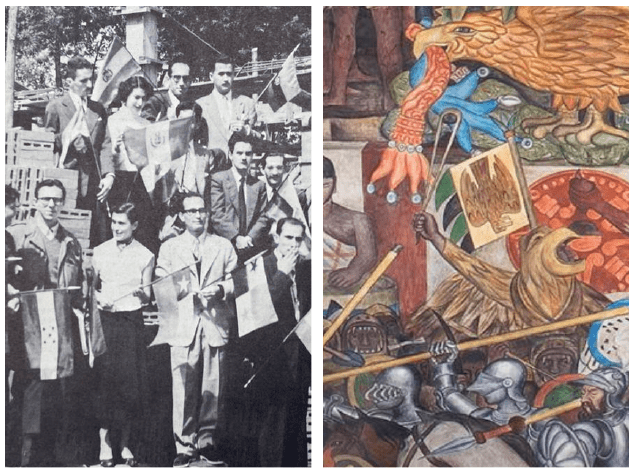
PLAS Graduate Works in Progress
November 17, 2022 · 12:00 pm—1:20 pm · 3rd Floor Atrium, Aaron Burr
Program in Latin American Studies

Princeton graduate students, faculty and visiting scholars are invited to learn more about our graduate students’ current research.
“Pan Americanism at Work”: CINVA and the Portable Brick Machine
Camila Reyes Alé, Ph.D. candidate in the Department of Architecture
This presentation traces the history of the CINVA-RAM, a manual machine for the production of stabilized-earth blocks created at the Centro Interamericano Experimental y de Adiestramiento en Vivienda (CINVA) in Bogotá, Colombia, in 1957. Founded in 1951 as a training center under the “technical cooperation” arm of the D.C.-based Organization of American States (OAS), CINVA trained and educated architects, engineers and social workers from across Latin America with a focus on manual construction techniques applied to housing development and urbanization, during a period of intense economic and social growth across the region, and the proliferation of its attendant inequities. CINVA’s primary mission was to research, experiment and develop technical solutions that were rooted in local materials, practices and forms of knowledge. The CINVA-RAM was one of these solutions. Acquired by Rockefeller’s International Basic Economy Corporation (IBEC), the CINVA-RAM was later patented and sold in multiple countries worldwide becoming a kind of global instrument, synonymous with terms such as ‘development’, ‘self-help’ and ‘third world’. This presentation aims to situate the history of the CINVA-RAM as specific both to the history of CINVA as institution and to forms of rural/local building knowledge grounded in South America, while questioning the neocolonial contradictions of its dissemination as a universal building solution.
DISCUSSANT
Ana Ozaki, Princeton-Mellon Fellow in Architecture, Urbanism, and the Humanities
~~~~~~~~~~~~~~~~~~~~~~~~~~
“Violence in the House of Fiction. Conflict and the Forms of Literary Realism in Mexico after the Revolution.”
Alonso Burgos, Ph.D. candidate in the Department of Comparative Literature
The development of the contemporary literary field in Mexico suggests that the overbearing scale of violence and loss that has taken over the country since the start of the “War against organized crime” has thoroughly seeped into the field of cultural production. Indeed, what many of the most acclaimed and prominent writers of the present share seems to be a concern with the violent disintegration of the communal fabric of the country and its representation in the literary text. In this context, the turn to the archive and the deployment of documents within the literary form have been hailed as some of the distinctive traits of contemporary Mexican literature. Rather than taking the documentary turn as an unprecedented change in the literary form in Mexico, this dissertation project will seek to frame documentation as a form of literary realism by taking a look at other documentary practices and realist procedures that were deployed in Mexican literature during past periods of conflict in the last century. By taking a look at the place and role of narrative literature during the Revolution and the Dirty War, the dissertation aims to offer a better understanding of the situation and the possibilities of the literary field in Mexico amid the contemporary moment of relentless violence.
DISCUSSANT
Nora Muñiz Hernández, Ph.D. candidate in Spanish and Portuguese
MODERATOR
Maria Smith, Ecology and Evolutionary Biology
Open to students, faculty, visiting scholars, staff and invited guests. A boxed lunch will be provided while supplies last.
Learn more about our presenters and this workshop here:
https://plas.princeton.edu/events/2022/plas-graduate-works-progress-camila-reyes-al%C3%A9-arc-alonso-burgos-com















